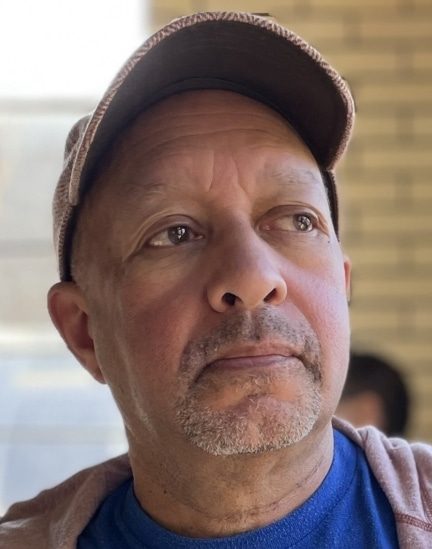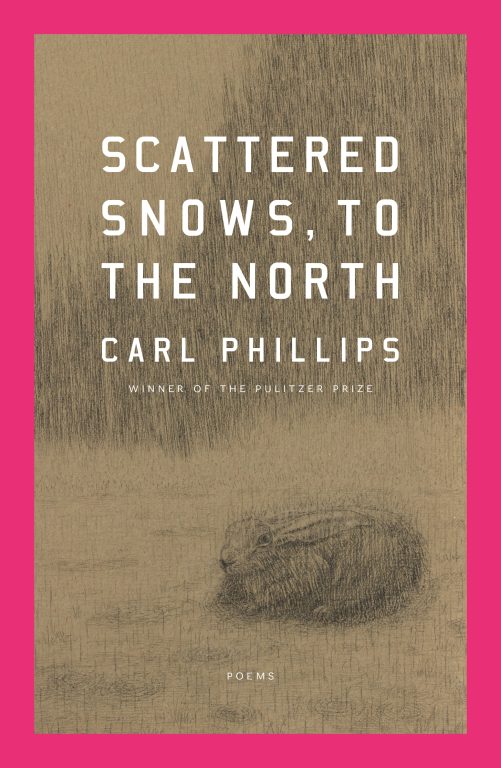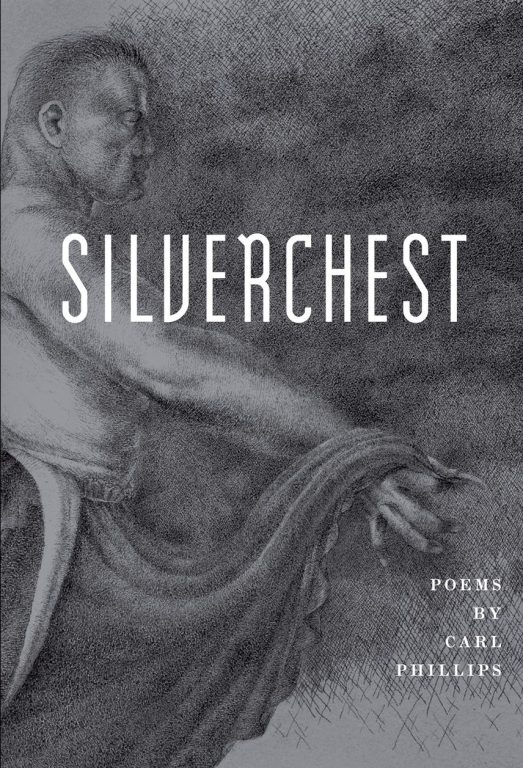
Carl Phillips is the author of seventeen books of poetry, most recently Scattered Snows, to the North, and Then the War: And Selected Poems 2007-2020, which won the Pulitzer Prize. His other honours include the Jackson Poetry Prize, the Aiken Taylor Award for Modern American Poetry, the Kingsley Tufts Award, the Los Angeles Times Book Prize, a Lambda Literary Award, the PEN/USA Award for Poetry, and fellowships from the Guggenheim Foundation, the Library of Congress, the American Academy of Arts and Letters, and the Academy of American Poets. His collection, Silverchest, was shortlisted for the Griffin Poetry Prize in 2014. Phillips has also written three prose books, most recently, My Trade is Mystery: Seven Meditations from a Life in Writing, and he has translated the Philoctetes of Sophocles. He lives on Cape Cod, in Massachusetts.
Photo credit: Reston Allen

Judges’ Citation
Phillips has found a way to articulate love in all its assertions and disguises—calibrated in all its doubt, tenderness, forms of desire, loyalty, solitudes.
It is Carl Phillips’ mastery that these poems measure, weigh, question, prevaricate: “it seemed,” “maybe,” “what if,” “it’s hard, these days, to know for sure what’s true,” “We weren’t afraid. Nor / unafraid.” And it is Phillips’ magic that this diction renders greater precision, not less; an astonishing accuracy in naming the liminal space from which our comprehension, acceptance, farewells, memories emerge and submerge again. Phillips has found a way to articulate love in all its assertions and disguises—calibrated in all its doubt, tenderness, forms of desire, loyalty, solitudes. In the poem “Stop Shaking,” he writes: “I keep making the same avoidable / few mistakes that I’ve always made, and then regretting them, / and then regretting them less.” In tone and diction, these poems never stray across the line between honesty and privacy. How grateful the reader is to enter and re-enter these poems, to be entered by them. For in their articulation of what is most elusive—what we cannot understand and also somehow know—in their recognition of unanswerable human limitation, is a kind of forgiveness.

- 2025
- 2014
Judges’ Citation
Carl Phillips is a poet of the line and a poet of the sentence, both at once.
Carl Phillips is a poet of the line and a poet of the sentence, both at once. Rubbing these two intangible structures – one musical, the other linguistic – against one another is an ancient way of kindling verbal and intellectual fire, and Phillips does it in poem after poem with casual mastery. The lines are carved in low relief, shaped by internal assonance, not by end-rhyme, while the sentences trace a perfectly grammatical yet occasionally dizzying switchback trail, using the standard resources of prose to climb far beyond the prosaic domain. Phillips’s Silverchest consists in large part of reflections on a love affair gone bad. It is a gay male love affair in this case, but the anguish, the self-doubt, the sense of abandonment and loss, are captured here with a tenderness, depth, and precision that can dance through sociocultural fences as easily as deer can dance across the grass. Silverchest speaks, as great books do, out of its own profound particularity, to and for something wordless and shared by us all.
Selected poems
by Carl Phillips
By then the point of the forest was the getting through it.
Then it lay behind them, all but its sharper details—flies licking at
dried blood, I think, on a random tree stump—getting swiftly lost,
its muffled birdsong, too, that had come less, it seemed, from
the trees than from beneath, mostly, as if somewhere deep,
deep inside the earth. Maybe meeting you has been
the one good reason I lasted so long in a world that must
eventually not include me, I almost said to him. Past the forest,
the shore, where the land ended, where briefly the waves hitting it
seemed the latest example of how squandering momentum can
become routine; while, upon the waves, the taken-for-grantedness
of shadow play seemed its own example: how one way to prove power
can be to quietly assume it. Then except for offshore, where the dark lay
like—defiantly—a ship at anchor, everything was itself. As it always
had been. They took off their shoes, their clothes.
They swam out to the dark ship.
Copyright © 2024 by Carl Phillips, Scattered Snows, to the North, Farrar, Straus and Giroux
Rehearsal
In the east country where I must have lived once,
or how else remember it, the words came falling to
every side of me, words from a life that I’d thought,
if not easy, might at least be possible, though that
was then: little crown and little burst of arrows
and ritual, loyalty, they are not the same . . . I lay
rippling like a field shot through with amethyst
and reason. Then it seemed I myself was the field,
the words fell toward, then into me, each one no
sooner getting understood, than it touched the ground.
Copyright © 2013 by Carl Phillips, Silverchest, Farrar, Straus and Giroux
The Difference Between Power and Force
Squalor of leaves. November. A lone
hornets’ nest. Paper wasps. Place where
everything that happens is as who says it will,
because. As in Why shouldn’t we have
come to this, why not, this far, this
close to
that below-zero where we almost
forget ourselves, rise at last unastonished
at the wreckery of it, what the wreckage
somedays can seem all along to have
been mostly, making you wonder what fear
is for, what prayer is, if not the first word
and not the last one either, if it changes
nothing of what you are still, black stars,
black
scars, crossing a field that you’ve
crossed before, holding on, tight, though
careful, for you must be careful, so easily
torn is the veil diminishment comes
down to as it lifts and falls, see it falling,
now it lifts again, why do we love, at all?
Copyright © 2013 by Carl Phillips, Silverchest, Farrar, Straus and Giroux